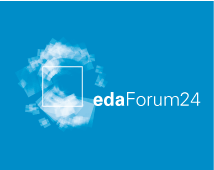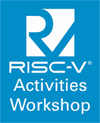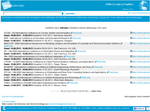Analog Design Automation: Dream or Reality?
Technical Session I
Session Keynote Analog Design Automation: Dream or Reality?
Georges Gielen, Katholiek Universiteit Leuven
Abstract
CMOS technology scaling into the nanometer era has enabled the integration of entire systems, many of which containing analog interface circuits and/or RF radios on the same die. To manage the increasing complexity of these integrated systems, electronic design automation tools are indispensable to improve design efficiency and to limit design risk. This presentation gives an overview of the progress in analog EDA that has been accomplished over the past two decades of intensive academic research and commercial startup activities. Advanced simulation techniques, behavioral modeling, circuit optimization and layout synthesis are all a reality today. Still, not every analog designer in industry has fully embraced these new tools in his/her daily practice. With nanometer technologies bringing even more challenges of increased variability and aggravating signal integrity conditions that require proper modeling and analysis tools, how much longer can analog designers continue the old-fashioned way and outdate themselves?
Biography
 Georges Gielen ESAT-MICAS, Department of Electrical Engineering Katholiek Universiteit Leuven
Georges Gielen ESAT-MICAS, Department of Electrical Engineering Katholiek Universiteit Leuven
Georges G.E. Gielen is Full Professor in Electrical Engineering at the Katholieke Universiteit Leuven. His research interests are in the design of analog and mixed-signal integrated circuits, and especially in analog and mixed-signal CAD tools and design automation (modeling, simulation and symbolic analysis, analog synthesis, analog layout generation, analog and mixed-signal testing). He has authored or coauthored five books and more than 300 papers in edited books, international journals and conference proceedings.
His work has also resulted in several spin-off companies. He served as General Chair of the DATE conference in 2006 and of the ICCAD conference in 2007. He is a Fellow of the IEEE and served as President of the IEEE Circuits and Systems (CAS) Society in 2005. He was elected DATE Fellow in 2007, and received the IEEE Computer Society Outstanding Contribution Award and the IEEE Circuits and Systems Society Meritorious Service Award in 2007.











